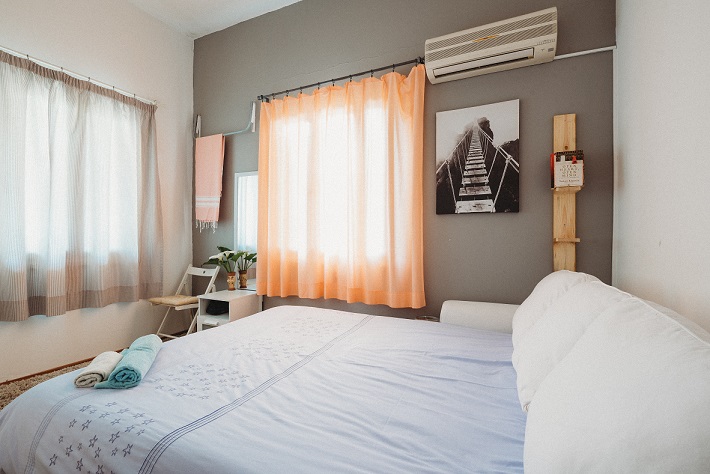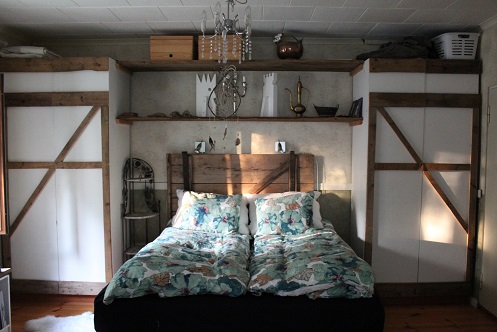
The enduring appeal of the family-run bed-and-breakfast has met technology. With an app from Airbnb (from “air mattress B&B”), or the somewhat similar VRBO (“vacation rental by owner”), homeowners can make money from their extra rooms or even their entire houses. More than 5 million listings appear today on Airbnb’s website, in more than 100,000 cities all over the world.
Using Airbnb’s online platform, tourists can find and chat with local hosts who offer guests a local’s view of the place they visit. Many listings target no-frills tourists seeking good deals on lodging. Specially vetted Airbnb Plus listings attract customers looking for a more luxurious touch.
The concept has worked. By focusing on the nexus of “app culture” and the “share economy,” Airbnb has found financial success. The company made its most recent splash by doubling its market value, weighing in at more than $100 billion in 2020’s biggest U.S. initial public offering.
Airbnb as a Platform, and a Social Influencer
Airbnb is a platform, to which homeowners submit identification, create personal profiles with vetted contact information, describe and register their available spaces on the platform, and set their prices per length of stay. For people who decide to do this as a regular income source, there are meetups where the experienced hosts coach the newbies.
Before choosing accommodations, tourists create user profiles as well. When making their reservations, they’ll review the Airbnb commission, taxes, and fees for homeowner and guest support. Airbnb handles the financial transaction. Both the homeowner and the guest can write public reviews of their experiences.
There are getaway homes, shared lodging, long-term stay discounts, and even hotel rooms with instant booking options. People can also buy event tickets through the site. The site’s most active owners receive the perk of high visibility. This is a benefit for guests and owners alike, because it allows owners more leeway in selecting the guests who will be a good fit for the noise level, the amenities, and so forth.
Can that ability to select guests turn into bias? It can, so Airbnb has made a commitment to detect and address private bias and racial discrimination, beginning by collecting data for a U.S. initiative called Project Lighthouse. The company has published information on its methodology to help other peer-to-peer transaction facilitators find and address discrimination. The company also has a straightforward plan to ensure inclusivity in its ranks.
Regulating House-Sharing in the Age of Airbnb
Thinking of having your home earn money with the help of a home-sharing platform? First, you’ll want to check your local rules. Some municipal zoning or administrative codes curtail homeowners’ options to open their houses to short-term, paying guests. Other local governments require owners to apply for special permits, or to be locally licensed, before sharing their homes or condos with paying guests.
Some of these rules are meant to protect landlords from renters who sublet their homes through Airbnb without the property owner’s permission. Others respond to complaints about the impact of tourists on the area’s character, or to objections made by hotel companies. Airbnb’s city regulations help page underscores the corporation’s interest in persuading local officials to regard the home-sharing platform as a benefit to cities and their residents.
The site advises condo and co-op owners to consult their property’s regulations to know if they bar sublets or include hosting restrictions. Renters and landlords are advised to check their leases; Airbnb further suggests adding riders to lease agreements to spell out space-sharing terms and conditions.
By now, you can see there are many reasons to consult with tax and law experts before jumping onto the platform. For example, you’ll need to know what your state’s Department of Revenue charges in hotel occupancy taxes. Yes, these will affect you. Many counties, too, collect hotel taxes, and your house may need to be registered in the county. Contact your county treasurer’s office to find out.
Condo Owners: Check Your Restrictive Covenants
Speaking of condos and co-ops, owners of these units need to look at their association’s rules for any language that could rule out short-term subletting. Often, violations of these rules incur lienable fines. That is, where allowed by law, a financial penalty placed against a unit must be paid, or a cloud on the unit owner’s title could result. Liens on a title obstruct the owner’s selling or refinancing options. In extreme cases, they become justifications for foreclosure actions to collect outstanding debts.
So, if a there is a homeowners’ association and the HOA’s Covenants, Conditions, and Restrictions (CC&Rs) apply to the unit, pay heed. If you are thinking of buying an investment property or renting part of it to others for any length of time, understand the restrictive covenants first. Additionally, a call to the management office can provide a quick idea of the property’s perspective on using home-sharing apps. Where rules are ambiguous, the attitude of the board and management will be key.
☛ Read more about deed restrictions on Deeds.com.
Finally, if you own investment properties, you’ll want to make sure your home or condo renters are playing by the rules — your rules, your association’s rules, and the local government’s rules. Be sure your lease template contains language expressly addressing subletting through peer-to-peer platforms, or having roommates without the owner’s knowledge and consent. A real estate lawyer familiar with local restrictions, and your own goals and limits, can draft the pertinent language.
Pennsylvania Takes Some Air Out of Airbnb’s Mattress

In April 2019, Pennsylvania’s Supreme Court startled home-sharers. In the case Slice of Life v. Hamilton Township Zoning Hearing Board, the court decided that a tourist rental violated local residential zoning. Pennsylvania’s Supreme Court focused on the significance of a “single-housekeeping unit.” In contrast to the lower court and the courts of numerous other states, it decided a use of a house must be expressly allowed in a zoning district; if it wasn’t expressly allowed, it was barred. This upheld Hamilton Township’s position, but it arguably forces zoning boards to rewrite rules to expressly permit certain unconventional uses of housing — including for addiction and shelter services.
Then there was the case of Sara Ladd, who listed properties in Pennsylvania’s Pocono Mountains on several sites, including Airbnb, HomeAway, and VRBO. The Pennsylvania Department of State investigated Ladd for allegedly running an unlicensed real estate brokerage. Ladd’s lawyers successfully maintained that forcing Ladd to jump through the hoops of getting a real estate broker’s credentials violated the Pennsylvania Constitution.
Most recently, Pennsylvania homeowners have been marketing their vacation cabins in the Poconos as pandemic-proof getaways. The governor determined that these getaways themselves were attracting interstate travel and presenting public health risks. Pennsylvania then moved to subject Airbnb and other short-term rentals to pandemic shutdown rules.
The Poconos weren’t the only place where this tension arose. There were reports from Pittsburgh of property owners exploiting loopholes in local rules, and short-term visitors flouting the state’s public health rules.
In a Nutshell…
Airbnb is hot. It’s changing the way people all over the world make travel plans. Yet it has also touched off tensions in communities, especially when hosts appear to be circumventing state and local policies.
We have only scratched the surface of the many ramifications of renting out your house on a short-term basis. And residential hosting laws will be in flux for some time to come. Websites can offer generally applicable news and information. But general information cannot be considered, and does not substitute for, an attorney-client relationship and case-specific advice.
The moral of the ongoing story? Property owners who’d like to rent out space in their homes should gain a familiarity with the prevailing local policies and attitudes. And they should speak with a local real estate lawyer about current rules before getting started.
Supporting References
Slice of Life v. Hamilton Township Zoning Hearing Board, 2019 Pa. LEXIS 2363 (Pa. Supreme Court, 2019).
Ladd v. Real Estate Commission, et al. (Pa. Supreme Court, 2019).
Photo credits: Filios Sazeides and Anne Nygård, via Unsplash.
